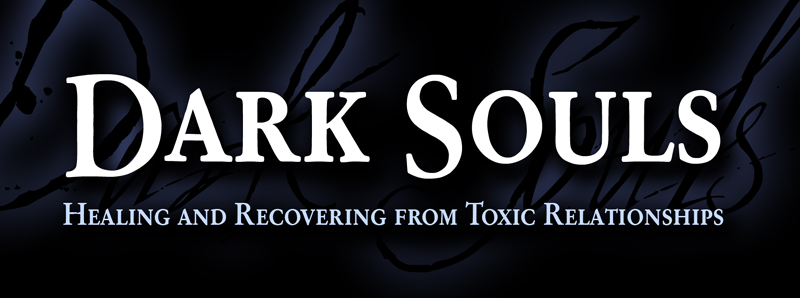The Aggressive Personalities – Part 2
Dr George Simon
By far the most limiting aspect of traditional approaches
to understanding the most character-disturbed individuals among us is that purely behavioral descriptions don’t
capture the essence of what is unhealthy and problematic in them.
As I mentioned in my last post, it’s unfortunate that for a long time the official diagnostic manual used by mental
health professionals only recognized one subtype of what I call the aggressive personalities, applying the term
Antisocial Personality Disorder basically to persons who consistently led lives of crime since
mid-adolescence. A relatively recent revision of the manual has de-emphasized the criminal conduct aspect of this
personality type but has failed to clearly delineate the many different subtypes, instead suggesting that persons
qualifying for the APD diagnosis may have either a varied smattering or clustering of disturbing traits. This
deficient classification system, however, still fails to recognize the distinctly pathological traits that define
at least five very different, sometimes dangerous, and always problematic personalities.
By far the most limiting aspect of traditional approaches to understanding the most character-disturbed individuals
among us is that purely behavioral descriptions don’t capture the essence of what is unhealthy and problematic in
them. It is my assertion that their inordinate predisposition for aggression lies at the heart of their character
disturbance and not only influences every aspect of their personality development but also creates most of the
problems in their interpersonal relationships. At heart these individuals are under-inhibited, unnecessary, and
unrelenting fighters who would be entirely different characters if they could bring themselves to concede,
back down, or submit, especially when it is in their long-term best interest to do so. When other problematic
traits combine with their aggressive predispositions (e.g., narcissistic traits) it makes for some very disturbing
personality styles.
I find it helpful to categorize 5 basic aggressive personality subtypes:
The first type I call the unbridled aggressive.
These are the individuals we have typically called “antisocial” personalities because their overall
personality style causes them to frequently violate major social norms and end up running afoul of the law.
They are openly and unabashedly aggressive in their interpersonal style, relish in trying to “beat the system,”
and because they detest submission, refuse to conform their conduct despite numerous negative consequences and
sanctions. Thus, many spend much of their lives incarcerated.
The second type I label the channeled aggressive.
Individuals with this personality type frequently channel their aggressive energies into socially sanctioned
outlets such as competitive sports, military careers, etc., and tough corporate enterprise. It’s important to
note that these individuals are very different from assertive personalities in that they don’t really imposed
self-discipline out of care and concern for others. Instead, they are determined and unscrupulous fighters who
might contain their aggression for pragmatic purposes but will readily cross socially acceptable boundaries
when they feel reasonably assured they have the money, power, influence, manipulative skill, or cleverness to
get away with it.
The third type I label covert-aggressive.
Covert-aggressive personalities do their best to appear benign on the surface and to veil all their
aggressive agendas. Their use of tactics to conceal their aggressive intentions while simultaneously getting
the better of others makes them one of the most manipulative personalities. These individuals are the primary
subject of my book In Sheep’s Clothing.
Another subtype is one that I label the sadistic aggressive.
Aggressive personalities hurt people by definition. But as strange as it may seem, inflicting pain on others
is not their principal aim. Aggressive personalities simply want whatever it is they desire and they’re willing
to run roughshod over anyone else to get it. Still, causing pain is not their aim. Getting their way is their
main desire, and in the process, others often get hurt. For the Sadistic Personality, inflicting pain and
demeaning others is a primary objective. They enjoy seeing other grovel and being at their mercy.
Lastly, I apply the label predatory aggressive to the most severely disturbed of all
characters, the psychopath (alt: sociopath).
These individuals are first and foremost characterized by their senseless, remorseless, and completely
empathy-devoid use, abuse, manipulation, and exploitation of others. They can have a superficial charm and
glibness. Some of them also lead parasitic lifestyles. But the heart of this personality style is twofold:
Being devoid of any empathy-based sense of bonding to others, having virtually no conscience, and having such a
pathological sense of superiority, 1), they feel entitled to prey on those they see as weaker and 2) they
remorselessly engage in predatory aggression. It’s important to remember also that predatory (or, instrumental)
aggression is not rooted in anger but in pure and heartless desire.
It’s very unfortunate, but many longstanding notions about why people do the things they do can put a relatively
healthy individual at an extreme disadvantage when they encounter any of the aggressive personalities. Not really
knowing who and what they are and what really makes them tick, so to speak, is how most people end up getting
victimized by them.
To read Part 1 of this article go here
| 





